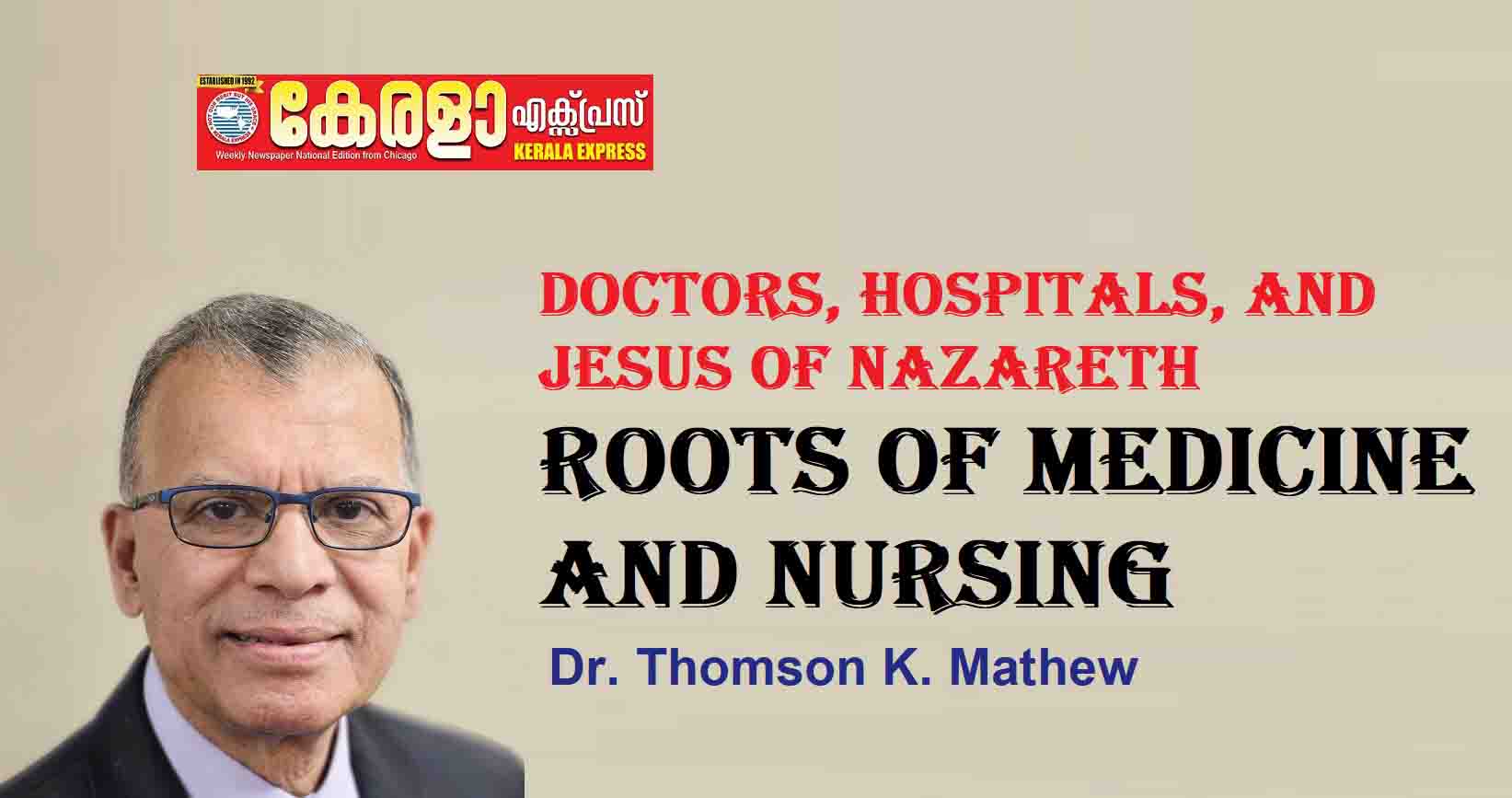Peter J. Floriani defines hospital as an “organized and complex system of highly trained professionals, having a wide variety of skills, all of which are aimed at identification and treatment and care of a suffering human being.” The root word for hospital relates to the concept of hospitality, and the word clinic is rooted in the Greek word kline, which means “bed”. Let us briefly examine the history of this complex system called hospital to see the historic connection between modern hospitals and the compassion of Jesus.
Peter J. Floriani defines hospital as an “organized and complex system of highly trained professionals, having a wide variety of skills, all of which are aimed at identification and treatment and care of a suffering human being.” The root word for hospital relates to the concept of hospitality, and the word clinic is rooted in the Greek word kline, which means “bed”. Let us briefly examine the history of this complex system called hospital to see the historic connection between modern hospitals and the compassion of Jesus.
Ancient History
The documented history of humanity’s work to heal the sick begins with the Code of Hammurabi, which was written around 1900 BC. This code recommended both religious and other treatments of patients and included clear ethical guidelines. Unethical physicians and those involved in malpractice were threatened with severe punishments. “A doctor’s fee for curing a severe wound would be 10 silver shekels for a gentleman, five shekels for a freedman and two shekels for a slave.” Obviously, the fee for treating a patient was very high and beyond the reach of ordinary individuals.
Historians say that Egyptian documents dating to 1700 BC describe certain surgical procedures in detail. Other documents, from 1600 BC, describe medications to be prescribed as well as religious incantations to be used. The Egyptians treated the visible symptoms as well as dealt with the religious aspects of illness. Some treatments included drugs and sorcery.
According to The Catholic Encyclopedia, ancient hospitals appear to have existed in Ireland (the Broin Bearg, “House of Sorrow”) in 300 BC and in India in 252 BC during King Ashoka’s reign. Similar institutions may have existed in Mexico. Based on available information, it is not possible to prove the existence of hospitals as we know them now in these ancient times, although the existence of efforts to alleviate illness and suffering is abundantly clear. It is also clear that the medical work done in these places was connected to the religions of the respective regions.
It is believed that the earliest physicians were more like itinerant evangelists. They traveled with their instruments and pharmacies (herbs and pharmaceutical materials in bags) to the sick who could afford their services. The poor went to the temples for treatment.
Scientific Medicine
During the period 460–377 BC, Hippocrates of Cos (off the coast of modern Turkey) emerged as a healer. He is considered the father of modern medicine. He believed that sickness was a natural process that was not related to religion, morality, or God’s anger. Hippocrates focused on the patient’s hygiene, nutrition, and exercise in relation to healing and well-being. He defined the physician as a practitioner of science, not a priest. Diagnosis was based on observation, logic, and integrity. Hippocrates believed that the patient’s atmosphere, not the treatment provided, played the most important role in his or her recovery.
It is believed that among the ancient Romans, the head of the household treated sick family members with the help of slaves who had medicinal knowledge. The Romans provided societal support for healing, such as providing clean water made available through aqueducts and sewer systems to maintain environmental hygiene. They employed individuals specially trained to treat the wounded in their armies. Remains of military hospitals have been found in the Roman Empire. The best ones were found in lower Germany and Switzerland, where numerous ancient medical instruments were found.
Sadly, during all this history, the poor and the oppressed were almost always excluded or abandoned. This situation changed only after the life, death, and resurrection of Jesus and the expansion of the Christian faith across the Roman Empire. One must not forget a physician (in the Bible) by the Greek name Luke, who reported the healing work of Jesus in his first book (Gospel of Luke). Jesus’ parable of the good Samaritan had a great impact on civilizations in terms of caring for the sick and wounded.
Hebrew (Jewish) and Greek Approaches
The Jewish approach to the sick and afflicted was fundamentally different from that of other nations and people. Their health and well-being revolved around their God and depended on their relationship with Him. Starting with the Passover, the Hebrews were instructed to depend on God and follow His commandments to maintain their health and to receive healing when needed. They received this assurance from God: “If you diligently heed the voice of the Lord your God and do what is right in His sight, give ear to His commandments and keep all His statutes, I will put none of the diseases on you which I have brought on the Egyptians. For I am the Lord who heals you” (Exodus 15:26).
Amazingly, modern science confirms the validity of the biblical admonitions. A healthy lifestyle does prevent diseases. The Hebrews had wound dressers, midwives, and physicians among them (Gen 35:17; 2 Chr 16:12). The Hebrew prophets taught that God was the center of their health and that a proper relationship with Him was the key to their well-being.
The Greek approach was more empirical and intellectual, seeing man as a two-part being with soul and body. They saw the soul as good and the body as bad, all the while glorifying the body. In the Hebrew understanding, human beings are whole persons with body, soul, and spirit. Jesus of Nazareth embodied this truth in His life and ministry. Jesus not only healed the sick but commanded His followers to go and do likewise.
Roots of Medicine and Nursing
It is this legacy of healing that the church inherited and developed to practice in different forms. This legacy is the root of modern medicine and nursing, and the initial incentive to establish the earliest hospitals. [More about this in Part 2.]. The life and ministry of Jesus and the example of the historic church influenced the surrounding cultures to consider taking care of the sick as a social and ethical responsibility.
[Adapted from Dr. Thomson K. Mathew’s book, Prayer, Medicine, and Healing: Why Ministers, Medical Professionals, and All Followers of Jesus Should Pray for the Sick (Available on Amazon)].
Dr. Thomson K. Mathew





















